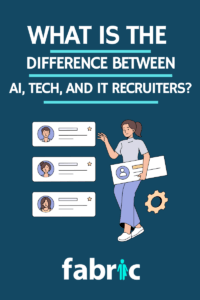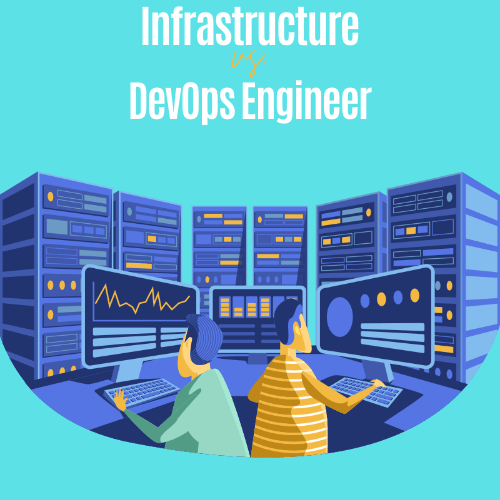 What is the difference between AI, Tech, and IT Recruiters?
What is the difference between AI, Tech, and IT Recruiters?
In the world of talent acquisition, recruiters play a crucial role in connecting skilled professionals with companies.
Generally, recruiters are specialized professionals who understand the specific needs of different industries and work tirelessly to find the right candidates for various roles. Their job involves creating job descriptions, sourcing and screening candidates, conducting interviews, and facilitating the hiring process to ensure a seamless match between employers and job seekers.
By leveraging their industry knowledge and networks, recruiters help companies build strong teams and individuals find opportunities that align with their career goals.
When it comes to fees, most staffing firms operate on a contingent basis, meaning they only get paid once a candidate they recommend is successfully hired. These fees typically range from 20% to 30% of the candidate’s first-year salary.
While this model can be effective, it often leads to a transactional relationship focused solely on filling positions. Fabric Staffing, however, sets itself apart with a subscription-based model. Instead of contingent fees, clients pay a monthly subscription that covers ongoing recruiting services. This approach fosters a more strategic partnership, allowing Fabric Staffing to continuously support clients in building and maintaining a robust talent pipeline, ensuring long-term success and retainment.
The Key Differences Between AI, Tech, and IT Recruiters
AI Recruiters: The Specialists in Artificial Intelligence Careers
AI recruiters focus on sourcing and placing talent in roles that revolve around artificial intelligence and machine learning.
These recruiters are adept at identifying candidates with specific skills in areas like neural networks, natural language processing, and computer vision. They understand the unique requirements of AI roles and projects, such as the need for proficiency in programming languages like Python and frameworks like TensorFlow or PyTorch.
For example, an AI recruiter would be skilled in finding a Data Scientist who excels in developing algorithms for predictive modeling, which is crucial for industries like finance or healthcare. This specialization requires a deep understanding of the AI landscape, including the latest trends and advancements.
Tech Recruiters: The Broad-Spectrum Experts
Tech recruiters, sometimes synonymous with IT recruiters, have a broader focus than AI recruiters.
They specialize in a wide range of technology-focused careers, including software and hardware engineering, cybersecurity, and data analysis. The key distinction lies in their ability to match candidates with a company’s specific technological needs.
For example, a fintech company may require a software engineer experienced in building secure payment systems, while a healthtech startup might be looking for a developer with expertise in healthcare compliance standards. Though both roles fall under the umbrella of “software engineer”, the skills and experience required can be vastly different. Tech recruiters must have a strong grasp of various programming languages, tech stacks, and the nuances of different industry verticals to make the right match.
IT Recruiters: The Infrastructure and Support Specialists
While often used interchangeably with tech recruiters, IT recruiters typically focus more on infrastructure and support roles.
This includes positions like network administrators, systems engineers, and IT support specialists. These recruiters are experts in identifying candidates who can manage a company’s IT infrastructure, ensure cybersecurity, and provide technical support.
IT recruiters need to understand a company’s hardware and software systems and how these systems integrate with broader business operations. For example, a company looking to upgrade its cloud infrastructure might require a Cloud Solutions Architect with specific experience in AWS or Azure. IT recruiters need to be familiar with these platforms and the certifications or qualifications that indicate a candidate’s expertise.
Matching Candidates to Specific Needs
One of the primary roles of any recruiter, whether specializing in AI, tech, or IT, is matching candidates to the specific needs of a tech company.
This requires a nuanced understanding of the industry, the company’s technological stack, and the specific qualifications required for the role.
For example, a Data Scientist with experience in credit risk modeling would be ideal for a fintech company, while a Data Scientist with a background in genomics would be more suited for a healthtech startup.
Essential Skills for Recruiters in Tech Fields
Recruiters in these fields must have a high-level understanding of coding and tech trends to effectively evaluate candidates’ qualifications. This includes knowing which programming languages are in demand, understanding the latest in tech stacks, and being aware of emerging technologies. Skills like Boolean search techniques and data analysis are also invaluable, as they help recruiters identify potential candidates and understand pipeline metrics.
Moreover, connecting with tech professionals on a personal level is crucial. With an unemployment rate of 1-2% in computer science professions, recruiters need to understand what motivates developers and how they fit into a company’s culture. This connection can be a decisive factor from the initial outreach to the final offer stage.
The Role of a Technical Recruiter
Technical recruiters have a more hands-on role compared to general recruiters. They collaborate closely with hiring managers to create detailed job descriptions, source candidates, and develop overall recruiting strategies. This includes understanding the specific technical skills required for a role and the industry standards for these skills.
For example, a technical recruiter must be able to differentiate between similar-sounding roles like Solutions Engineer and Integration Engineer, each of which may require a distinct set of skills and experiences. They also play a key role in crafting compelling outreach messages, screening candidates, and negotiating offers.
The Path to Becoming a Technical Recruiter
While a STEM background or engineering degree can be beneficial, it’s not a strict requirement for becoming a technical recruiter. What’s more important is a commitment to learning and understanding the technical landscape, including roles, skills, and industry jargon. Building relationships, networking, and developing strong communication skills are also critical components of success in this field.
Conclusion
Understanding the differences between AI, tech, and IT recruiters (however slight they may seem) is crucial for both companies and candidates navigating the tech industry. Each type of recruiter offers specialized expertise tailored to distinct segments of the technology landscape, from cutting-edge AI research to broad-spectrum tech roles and critical IT support positions. Recognizing these distinctions can significantly enhance the effectiveness of recruitment efforts.
Fabric Staffing stands out as a leader in the IT and tech recruiting industry, offering a unique subscription-based model that goes beyond the traditional contingent fee structure. This innovative approach allows Fabric Staffing to forge deeper, more strategic partnerships with clients, providing continuous support in building strong, dynamic teams. With a deep understanding of the tech landscape and a commitment to quality, Fabric Staffing is the go-to choice for companies seeking top-tier talent and candidates looking for the perfect career match. Whether you’re a startup or a Fortune 500 company, Fabric Staffing delivers exceptional service and results, ensuring long-term success and stability in the ever-evolving world of technology.
At Fabric Staffing, we are committed to helping organizations unlock their full potential through innovative talent solutions. Contact us to learn more about how we can support your talent acquisition and development needs.


 What is the difference between AI, Tech, and IT Recruiters?
What is the difference between AI, Tech, and IT Recruiters?







